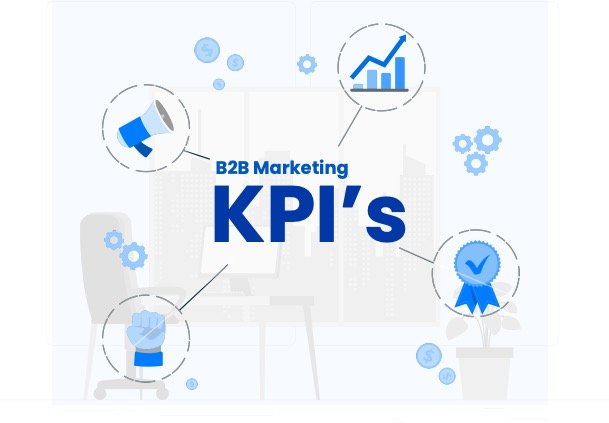Lead Acquisition KPIs for B2B
Lead acquisition is a critical aspect of B2B marketing and sales efforts. Measuring the effectiveness of lead acquisition strategies helps B2B organizations understand how well they are attracting and nurturing potential customers.

Key Performance Indicators for B2B Lead Acquisition
Here are key Performance Indicators (KPIs) for lead acquisition in B2B:
Number of New Leads: This is the most basic KPI, measuring the quantity of new leads acquired over a specific period. It provides an overview of lead generation efforts.
Lead Source Performance: Track which marketing channels or sources (e.g., website, social media, email campaigns, trade shows, referrals) generate the most leads. This helps allocate resources effectively.
Cost Per Lead (CPL): CPL quantifies the expense associated with securing one lead. It is determined by dividing the overall marketing or promotional expenditure by the total leads garnered. A reduced CPL signifies economic efficiency.
Conversion Rate: Conversion rate measures the percentage of leads that progress to the next stage of the sales funnel (e.g., becoming marketing-qualified leads or sales-qualified leads). It’s a key indicator of lead quality.
Marketing-Qualified Leads (MQLs): MQLs are leads that meet specific criteria and are considered more likely to become customers. Track the number of leads that progress to the MQL stage.
Sales-Qualified Leads (SQLs): SQLs are leads that meet sales-specific criteria and are considered ready for direct sales engagement. Monitor the number of leads that advance to the SQL stage.
Lead-to-Customer Conversion Rate: This KPI calculates the percentage of leads that ultimately become paying customers. It’s a crucial indicator of lead quality and sales effectiveness.
Lead Velocity Rate (LVR): LVR measures the growth rate of leads over a specific period. It helps assess lead generation scalability and growth potential.
Lead Engagement Score: Allocate scores to leads reflecting their interaction intensity with marketing materials and initiatives. Leads with elevated scores have a greater propensity for conversion.
Customer Acquisition Cost (CAC): CAC calculates the cost of acquiring a new customer, taking into account marketing and sales expenses. Lowering CAC while maintaining lead quality is a goal for many B2B organizations.
Lead Funnel Conversion Rates: Analyze conversion rates at each stage of the lead funnel (e.g., awareness, interest, consideration, decision). Moreover identify bottlenecks and areas for improvement.
Lead Segmentation Performance: Assess the performance of lead segmentation strategies, such as industry-based or demographic-based segments, to determine which segments generate the most valuable leads.
Lead Scoring Accuracy: Evaluate the accuracy of lead scoring models in predicting lead quality and conversion likelihood. Adjust scoring criteria as needed.
Conclusion
In addition, by tracking these lead acquisition KPIs, B2B organizations can optimize their lead generation and nurturing strategies, allocate resources effectively, and improve the overall efficiency of their sales and marketing efforts.
Analytics is the driving force behind informed decision-making. Whether aiming to boost profitability, striving to make a greater impact, or looking to improve services, analytics is the key to success. It’s the art of transforming complex data into clear, concise, and strategic insights.
If you’re ready to harness the full potential of your data and drive success through analytics, let’s connect. Together, we can unlock insights that will propel your business or organization to new heights.

